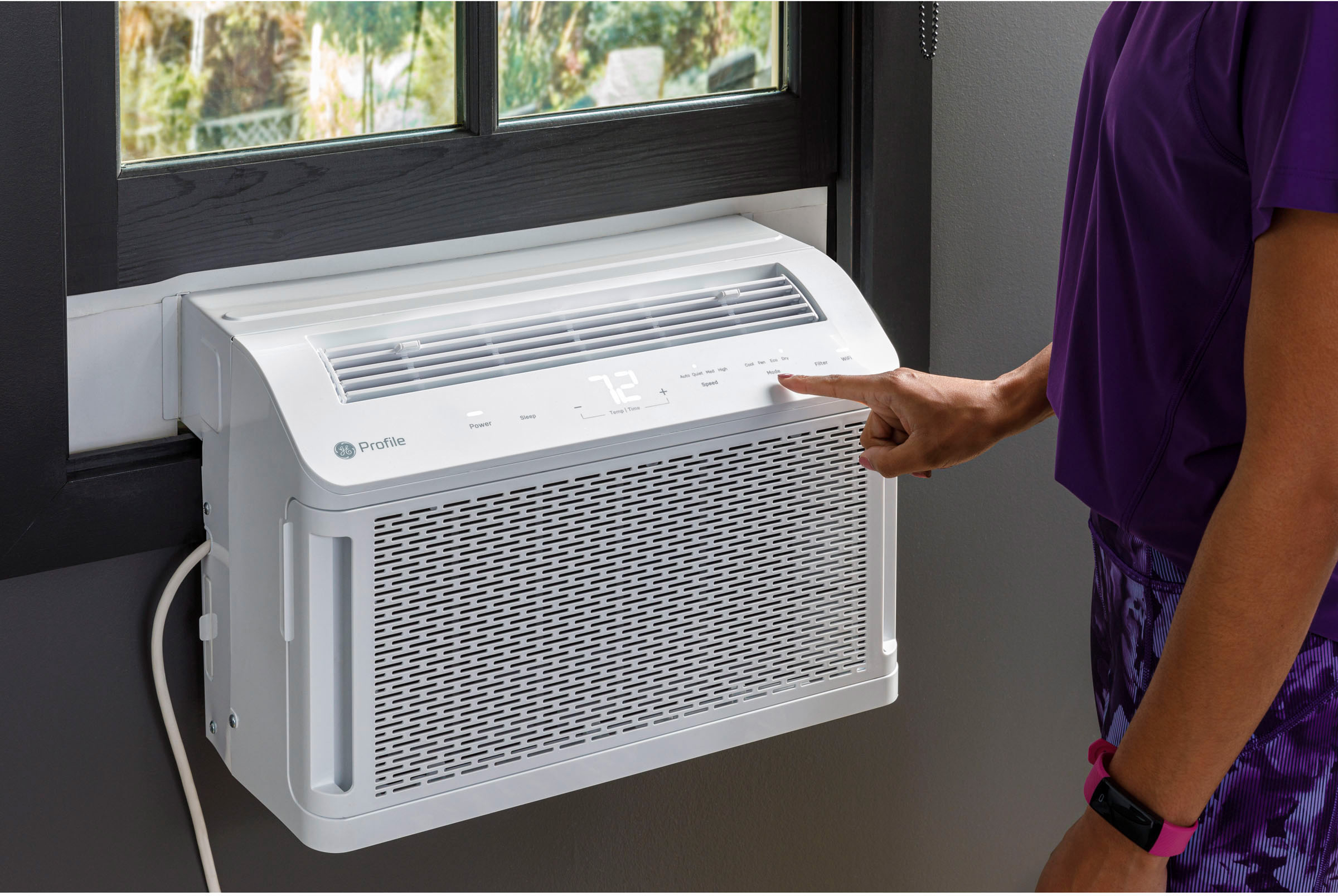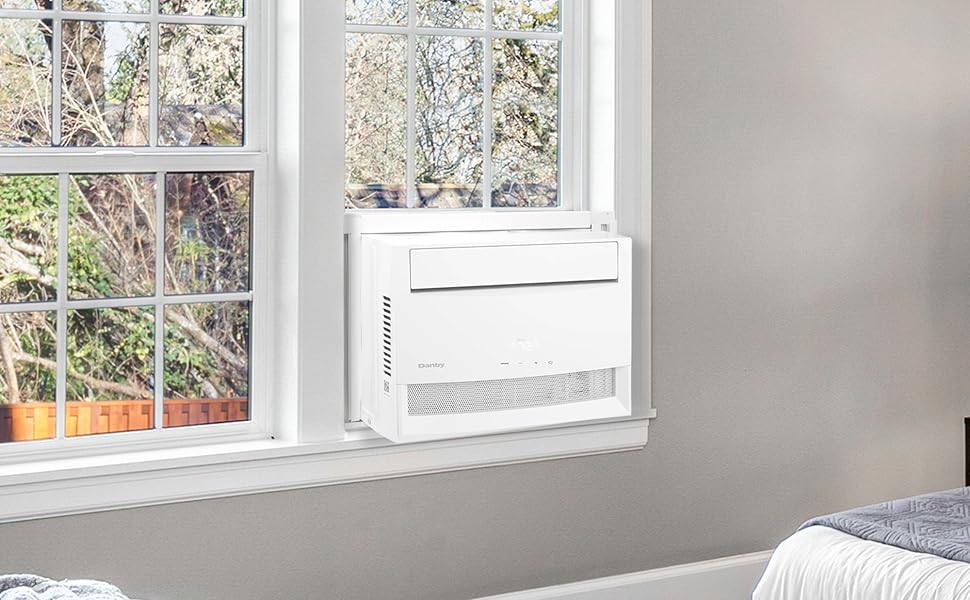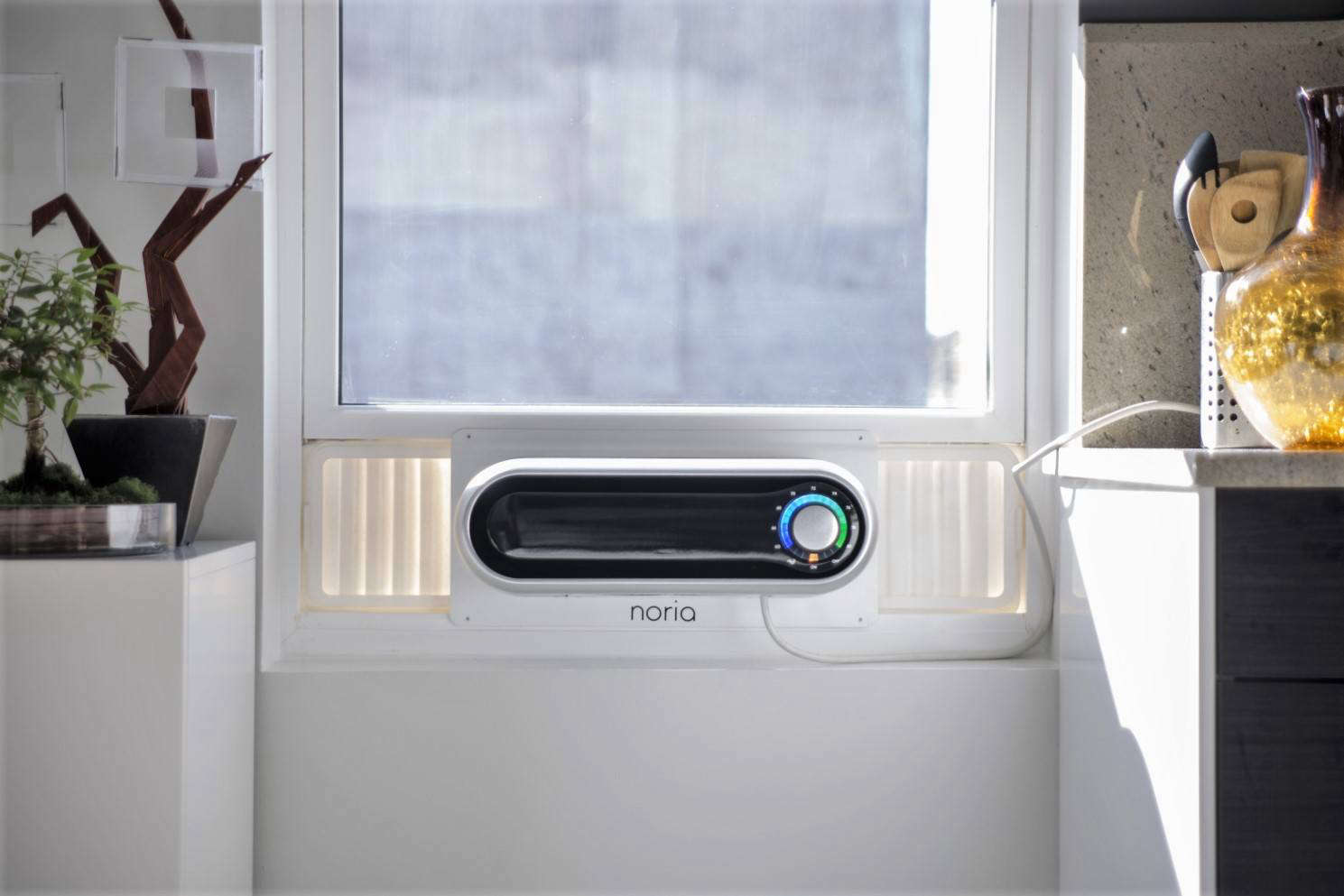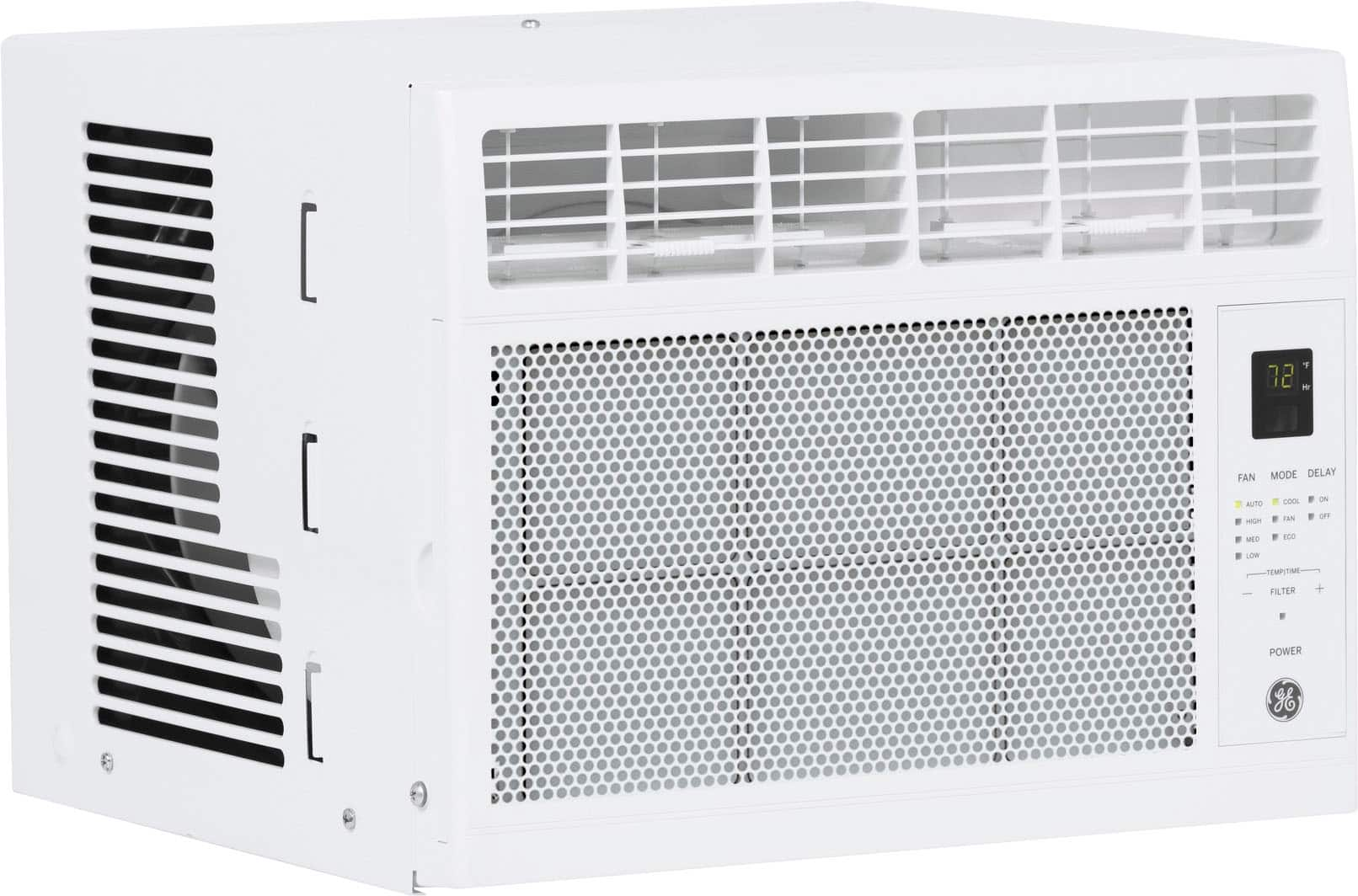Window Air Conditioner For Small Bedroom

Frequently Asked Questions: Window Air Conditioners for Small Bedrooms
Choosing the right window air conditioner for a small bedroom can be confusing. This FAQ aims to answer your most pressing questions and guide you towards the perfect cooling solution. We'll cover everything from sizing and energy efficiency to noise levels and installation.
Q1: What size window air conditioner do I need for my small bedroom?
Sizing is crucial for optimal cooling. Too small, and your AC will struggle to cool the room effectively. Too large, and it will cycle on and off too frequently, leading to uncomfortable temperature swings and higher energy bills. Here's how to determine the right size:
- Calculate the square footage: Measure the length and width of your bedroom and multiply them. For example, a 10ft x 12ft room is 120 square feet.
- Use the BTU (British Thermal Units) rule: As a general rule, you need 20 BTU per square foot. So, for a 120 sq ft room, you'd need 2400 BTU (120 x 20).
- Adjust for factors: This is just a starting point. Consider these adjustments:
- Sunlight: If the room gets a lot of sun, add 10% to the BTU requirement.
- Occupants: Add 600 BTU for each person who regularly occupies the room.
- Kitchen: If the bedroom is near a kitchen, add 4,000 BTU.
- Floor Level: If the bedroom is on the top floor, and therefore feels hotter add 15% to the BTU requirement.
- Common BTU Ranges for Small Bedrooms: Most small bedrooms (around 100-150 sq ft) typically require between 5,000 and 6,000 BTU. Remember to adjust based on the factors above!
Important Note: Always err on the side of slightly higher BTU if you're unsure, but avoid going overboard. A model that is too big will lead to humidity issues and inconsistent cooling.
Q2: What does "energy efficiency" mean in window air conditioners, and how important is it?
Energy efficiency is extremely important, as it directly impacts your electricity bill and environmental footprint. It's measured using the EER (Energy Efficiency Ratio) and SEER (Seasonal Energy Efficiency Ratio).
- EER (Energy Efficiency Ratio): This measures the cooling output (BTU) divided by the power input (watts) under specific conditions. A higher EER means better energy efficiency. Look for an EER of 10 or higher.
- SEER (Seasonal Energy Efficiency Ratio): This is similar to EER, but it measures efficiency over an entire cooling season, taking into account varying temperatures. SEER is typically used for central air conditioning systems. For window units, EER is the more common and relevant metric.
- Energy Star Certification: Look for the Energy Star label. Energy Star certified air conditioners meet strict energy efficiency guidelines set by the EPA. These models typically have higher EER ratings.
Why is energy efficiency important?
- Lower Energy Bills: An energy-efficient AC uses less electricity to cool the same space, saving you money each month.
- Reduced Environmental Impact: Less energy consumption means a smaller carbon footprint.
- Potential Rebates: Many utility companies offer rebates for purchasing Energy Star certified appliances, including air conditioners. Check with your local utility provider.
Q3: How noisy are window air conditioners, and what can I do to minimize the noise?
Noise is a common concern with window air conditioners, especially in bedrooms. Noise levels are measured in decibels (dB). A lower dB rating indicates a quieter unit.
- Typical Noise Levels: Most window ACs range from 50 to 60 dB. Some quieter models can go down to around 45 dB.
- Consider Your Sensitivity: If you're a light sleeper, noise level should be a major consideration. Look for models specifically marketed as "quiet" or "low-noise."
Tips for Minimizing Noise:
- Choose a Quiet Model: Read reviews and look for dB ratings before purchasing.
- Proper Installation: A properly installed AC is less likely to vibrate and create noise. Ensure it's securely mounted in the window frame. Use foam insulation to fill any gaps and dampen vibrations.
- Use Anti-Vibration Pads: Place anti-vibration pads between the AC unit and the window frame to absorb vibrations.
- Clean the Filter Regularly: A dirty filter can cause the AC to work harder and make more noise. Clean or replace the filter every month.
- Consider a Window AC with a "Sleep Mode": Some models offer a sleep mode that reduces fan speed and noise levels while you sleep.
Q4: Are there any specific features I should look for in a window air conditioner for a small bedroom?
Beyond size and energy efficiency, consider these features:
- Remote Control: Allows you to adjust the settings from your bed.
- Digital Thermostat: Provides precise temperature control.
- Programmable Timer: Lets you schedule the AC to turn on and off at specific times. This can help save energy and ensure your room is cool when you need it to be.
- Sleep Mode: Reduces fan speed and noise levels for comfortable sleeping.
- Eco Mode: Optimizes energy consumption by automatically adjusting the cooling based on the room temperature.
- Fan-Only Mode: Allows you to circulate air without cooling, which can be useful on mild days.
- Air Filter Type: Some ACs have advanced air filters that remove allergens and dust from the air. This can be beneficial if you have allergies or asthma. Consider an AC with a washable filter for easy maintenance.
- Directional Louvers: These allow you to direct the airflow where you need it most.
Q5: Can I install a window air conditioner myself, or should I hire a professional?
Most window air conditioners are designed for relatively easy DIY installation, but your comfort level and physical ability are important factors to consider.
You can likely install it yourself if:
- You're comfortable lifting and maneuvering heavy objects (some window ACs can be quite heavy).
- You have basic handyman skills and tools (screwdriver, measuring tape, level).
- You understand the instructions clearly.
- Your window is compatible with the AC unit (size and type).
Consider hiring a professional if:
- You're uncomfortable lifting heavy objects.
- You have physical limitations.
- Your window requires modifications (e.g., widening the opening).
- You're unsure about any part of the installation process.
- You want to ensure the AC is installed correctly and safely.
Safety First: Always follow the manufacturer's instructions carefully. If you're unsure about anything, it's best to err on the side of caution and hire a professional.
Q6: What are the common mistakes people make when choosing a window air conditioner for a small bedroom?
Avoiding common pitfalls ensures you get the best cooling experience. Here are some mistakes to watch out for:
- Underestimating or Overestimating BTU: As discussed earlier, getting the right BTU rating is crucial. Failing to accurately assess the room size and other factors leads to inefficient cooling or uncomfortable temperature fluctuations.
- Ignoring Energy Efficiency: Choosing a cheap, inefficient model can save money upfront but cost you significantly more in the long run due to higher energy bills.
- Neglecting Noise Levels: A noisy AC can disrupt sleep and make your bedroom less comfortable. Always check the dB rating and read reviews about noise levels.
- Improper Installation: A poorly installed AC can be inefficient, noisy, and even dangerous. Ensure it's securely mounted and properly sealed to prevent air leaks.
- Forgetting Maintenance: Regular filter cleaning is essential for optimal performance and energy efficiency. Neglecting maintenance can shorten the lifespan of your AC.
- Ignoring Window Compatibility: Make sure the window AC unit is compatible with your window size and type before purchasing. Some ACs are designed for specific window types (e.g., single-hung, double-hung).
- Purchasing Based Solely on Price: While price is a factor, prioritize energy efficiency, noise levels, and features that are important to you. A slightly more expensive, high-quality AC can be a better investment in the long run.
Q7: Beyond Window Units, Are There Alternatives For Cooling My Small Bedroom?
While window ACs are a popular choice, consider these alternatives:
- Portable Air Conditioners: These units are self-contained and can be moved from room to room. They vent hot air through a hose that needs to be directed outside, usually through a window. Pros: No permanent installation, portable. Cons: Can be less energy-efficient than window units, require venting.
- Ductless Mini-Split Systems: These systems consist of an outdoor compressor and an indoor air handler. They offer efficient cooling and heating and are quieter than window units. Pros: Energy-efficient, quiet, offer both cooling and heating. Cons: More expensive than window units, require professional installation.
- Evaporative Coolers (Swamp Coolers): These coolers use evaporation to cool the air. They're most effective in dry climates. Pros: Energy-efficient, environmentally friendly. Cons: Only effective in dry climates, can increase humidity levels.
- Fans: While fans don't actually cool the air, they can create a breeze that makes you feel cooler. Use ceiling fans, floor fans, or table fans to circulate air. Pros: Inexpensive, energy-efficient. Cons: Don't actually lower the temperature.
Choosing the best option depends on your budget, climate, and personal preferences. Consider the pros and cons of each before making a decision.










